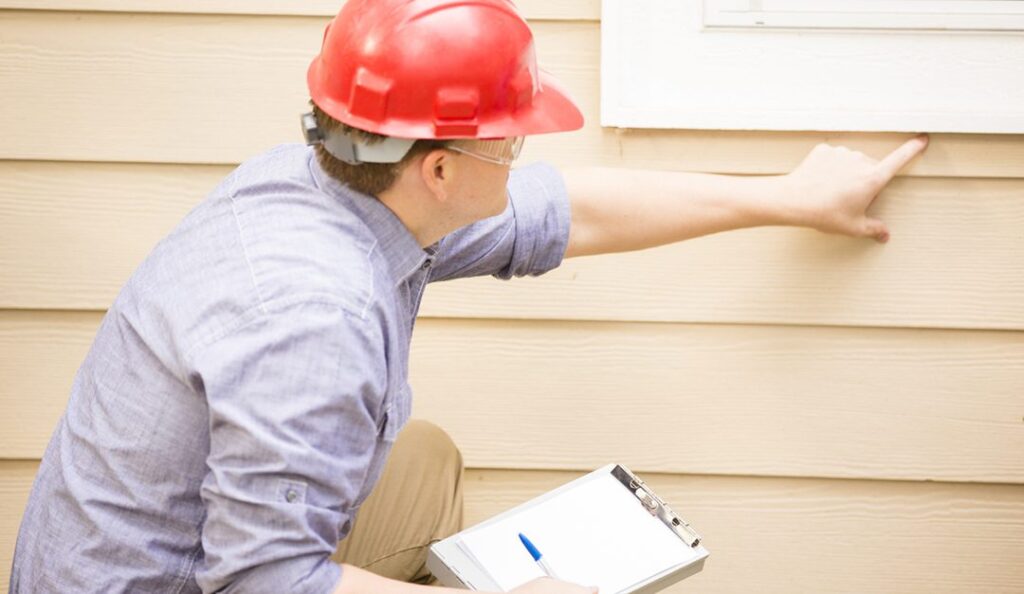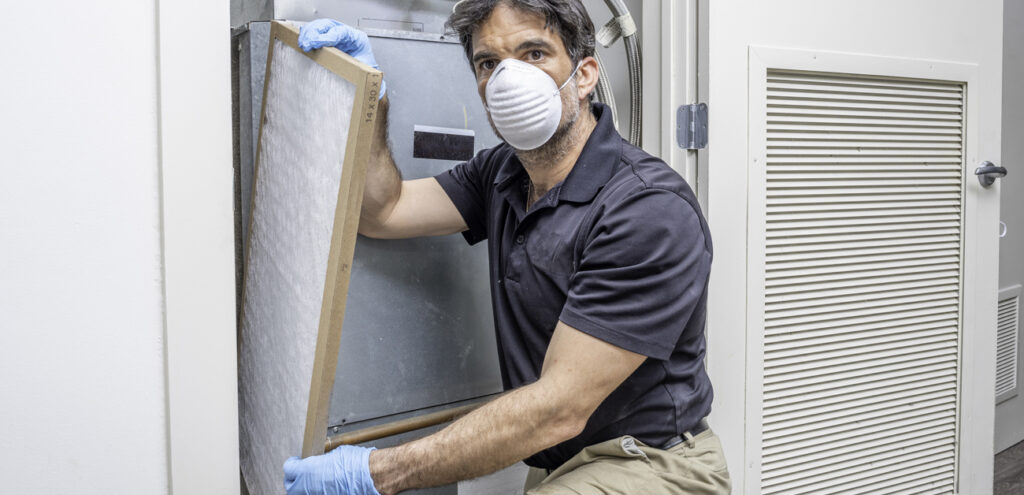Items Home Inspectors Can’t Evaluate
When a home inspector examines the property your buyer is under contract to purchase, you should know that there are some items the inspector legally can’t determine about its condition. Inspectors are bound by a set of rules that limit what they can share with a buyer
Termites, rats, or mold. Most inspectors aren’t licensed to determine whether these types of infestations exist. Instead, they may note evidence such as sagging floors (which could imply a termite problem), shredded insulation (an indication of rats), or black discoloration on the walls (which could mean fungal growth). If an inspector notices these items, your client should follow up with a specialist who can better evaluate the issues.
Hidden flaws. Inspectors check for what they can physically see without having to move anything. Therefore, they may not be able to say whether the foundation is cracked behind the wood paneling or an electrical plug behind a sofa isn’t working. Inspectors should note if they are unable to evaluate a critical component of the home. In some situations, the seller could be asked to move an item in order to give the inspector a better view.
Evaluations of pools or septic systems. Specialists may be required to come in to take a closer look at certain aspects of the home. Inspectors are not certified to inspect everything. “We’re general practitioners,”
Unnecessary repairs. Inspectors may take note of every little flaw in a home, from chipped paint to window scratches. That could leave your buyer with an overwhelming list of defects. “Some inspectors like to show they know more than somebody else,”

Ask the Experts: Taking Care of Your Home Inspection While Following Proper Guidelines for COVID-19
Q: This is certainly the most unusual of times. How is Pillar To Post Home Inspectors®\ handling customers and business in the wake of COVID-19?
A: This is something none of us has ever experienced, although there have been other disasters and trying times for our industry. Like every other business is likely to say, the health and safety of our customers is our highest priority. As such, we are diligently monitoring updates from the Centers for Disease Control and Prevention (CDC), the World Health Organization (WHO)
Q: How do you minimize contact and keep the proper distance while conducting home inspections?
A: Fortunately, we have years and years of experience building solid relationships
Q: Why should people continue with home inspections or other semi-essential services?
A: We feel that people are going through enough, as are our home inspectors. They are all small business owners who would like to get on with a task that will bring everyone a step closer to getting back to a normal life. While following all safety guidelines, our home inspection is just one more large task that people can move forward with. At a time when many items and services have to be put on hold, it’s great to keep up with those that can be managed. This causes less stress and allows people to feel less “behind” on life.
Q: Where do you see the other side of this crisis?
A: Hopefully, we will all have learned a lot about personal distance, safety, helping others in a time of need and putting proper protocols in place for an unlikely event such as this.

Managing Home Inspection Fears During the Pandemic
As real estate professionals learn to complete transactions virtually and in other ways that take social distancing guidelines into account, a trouble spot may be the home inspection. Already, sellers are retreating from the market, fearful of letting people into their homes and potentially coming in contact with the coronavirus. So, the home inspection—which requires an inspector’s physical presence at a property—may be a tough negotiation point. “The biggest fear people have is of the unknown—not knowing the inspector, not knowing the people coming into their house—and what inspectors do already is pretty intrusive,”
First, many inspectors advise that no more than two other people besides the inspector should be present at a home during an inspection. And you don’t have to be one of them. “Don’t attend the inspection unless you absolutely have to—and there’s no reason why you should if your clients are already going,”
But if you absolutely must be present, wear masks and gloves, maintain the recommended six feet of distance from others, and use a laptop with a Bluetooth mouse to direct others through a digital copy of the inspection report plus photos and videos
You also may ask a home inspector to video call you and your client to review items in real time while the inspector is at the property so no one has to meet face-to-face “That way, the inspector can still take us over to the wobbly railing and show us exactly where it is, or show us how the window is loose and doesn’t stay open. So, it’s kind of like being there,”
It’s also incumbent on those who visit a home in person for an inspection to keep sanitation in mind. “When I walk into somebody else’s house, I used to like to leave it as I found it. Now I’m doing my best to leave it better than I found it,”
Can buy and sell a house in person again
In-person home showings, appraisals, inspections, and other real estate activity can resume throughout under certain COVID-19 safety guidelines, according to an executive order
Before the order reopened real estate, was the only state that deemed real estate activity “nonessential” and barred in-person real estate transactions for a majority of its residents. The ban was part of the business shutdown meant to slow the spread of the coronavirus. The commonwealth permitted in-person real estate activity only in counties in the yellow phase of reopening.
All real estate-related businesses, including title companies, notaries, and mortgage loan officers, must follow guidelines from the U.S. Centers for Disease Control and Prevention and conduct business remotely when possible, according to the executive order.
In-person activities such as showings and final walk-throughs must be scheduled by appointment and be limited to one real estate professional and two others inside a property at one time. Real estate agents and clients must travel separately. For in-person showings, appointments should be 30 minutes apart or more, agents should minimize the time spent inside the property, and everyone should avoid touching common surfaces such as doorknobs and light switches. Group showings remain banned
real estate activity in his business closures roughly two months ago, real estate agents have been relying on virtual tours and open houses to sell properties. But the ban on in-person showings and other interactions has depressed home sales. Some potential sellers and buyers have been stuck in financially perilous situations in which they couldn’t move forward with transactions.

Real estate business is ‘essential,’ but showings must be virtual
The guidance from ESD still encourages real estate agents to “maintain social distance to the extent possible,” but notes that showings (for both residential and commercial properties), inspections, and appraisals may resume.
What this doesn’t mean is that traditional viewings—open houses, or even having an agent bring a client into a home for a one-on-one appointment—should continue, as was previously reported.
“Being an ‘essential’ industry does not mean business as usual — business can only be conducted if social distancing and other public health protocols are followed and all must be doing everything they can to help stop the spread,” a spokesperson for ESD said in a statement. “For real estate, that means brokers can only transact business in their offices or show properties virtually, and anything else is off limits.”
Essential Businesses must continue to comply with the guidance and directives for maintaining a clean and safe work environment issued by the Department of Health and every business, even if essential, is strongly urged to maintain social distance to the extent possible.
The following functions of real estate and/or realtors (sic) are considered essential: residential home and commercial office showings; home inspections; and residential appraisers.